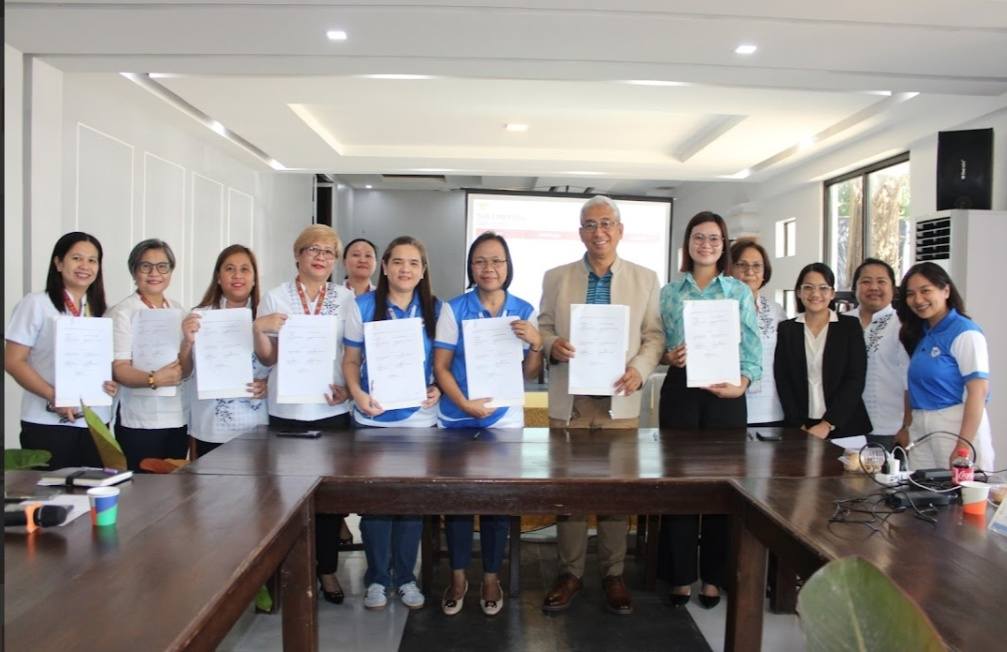Published March 03, 2025 by Campus IO

CSU through the College of Business, Entrepreneurship, and Accountancy (CBEA) - Andrews and the Regional Population Commission has entered into a Memorandum of Agreement to collaborate on vital research and advocacy programs addressing intimate partner violence, adolescent pregnancy, VAWC, male involvement in responsible parenthood, and women empowerment.
The agreement was signed by Engr. Arthur Ibañez, OIC-Office of the University President and Ms. Theresa C. Soriano, CPD Regional Director together with Andrews CEO Carla Sumigad and Dr Melani L. Perez, CPD Population Program Officer III, CBEA Dean Antonia Taguinod, Andrews Research Coordinator July Calleda, CBEA research Coordinator Christopher Caurel and PopDev Coordinator Xyra Krizelle T. Abalos.
The MOA looked into the use of the Findings and Recommendations of the research - Patterns of Intimate Partner Violence and Chronic Psychosocial Enormities on Battered Women: A Basis for Primary Support Program and Advocacy Intervention.
According to CPD Director Soriano, the said partnership is very significant in the entire promotion of the different population and development (POPDEV) strategies of the agency on advanced adolescent health and development, responsible parenthood and family planning with emphasis on the male involvement such as the "Kalalakihang Tapat sa Responsibilidad at Obligasyon sa Pamilya" or KATROPA, and other interventions that address the prevailing population issues in the region.
CSU's OIC Ibañez in his speech thanked the commission for the partnership and promised to give the support that the commision need in line with the partnership.
Also present during the MOA signing are the research authors: Dr Chona Agustin, Dr. Julia Cardona, Irene Aquino , Dr Catherine Hizon, Grace Delelis, Rayma Lagundi and Dr. Rhodora Romero.
Intimate Partner Violence (IPV) is a widespread issue affecting many individuals, particularly women. This research examined the patterns of IPV and the long-term psychosocial effects on battered women, including mental health challenges like depression, anxiety, and PTSD.
It aimed to propose a comprehensive primary support program and advocacy intervention to mitigate domestic violence. By analyzing data from government agencies such as the Philippine National Police Regional Office 2, the research underscored the need for tailored support programs to address the complex challenges faced by battered women.